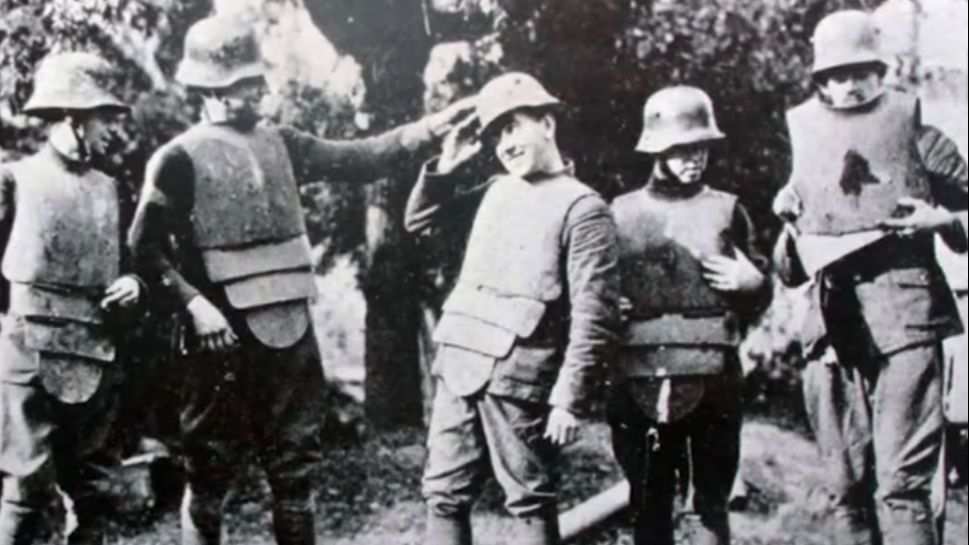Have you ever thought about the fact that Vietnamese people over 100 years ago set foot in Europe to participate in a war that shook the entire world? World War I took place from 1914 to 1918. The name may sound distant, but it turns out that tens of thousands of Vietnamese were involved. From poor farmers to soldiers fighting on the bloody battlefield.
In 1914, in the distant city of Sarajevo in Europe, a gunshot rang out, killing Archduke Franz Ferdinand of Austria-Hungary. Few could have imagined that from that gunshot, a chain of events would pull the entire world into the whirlwind known as World War I. The European powers, already tense over colonial disputes, now plunged into an unprecedented great war in human history. For the Vietnamese, at that time, Vietnam was living under the domination of French colonizers.
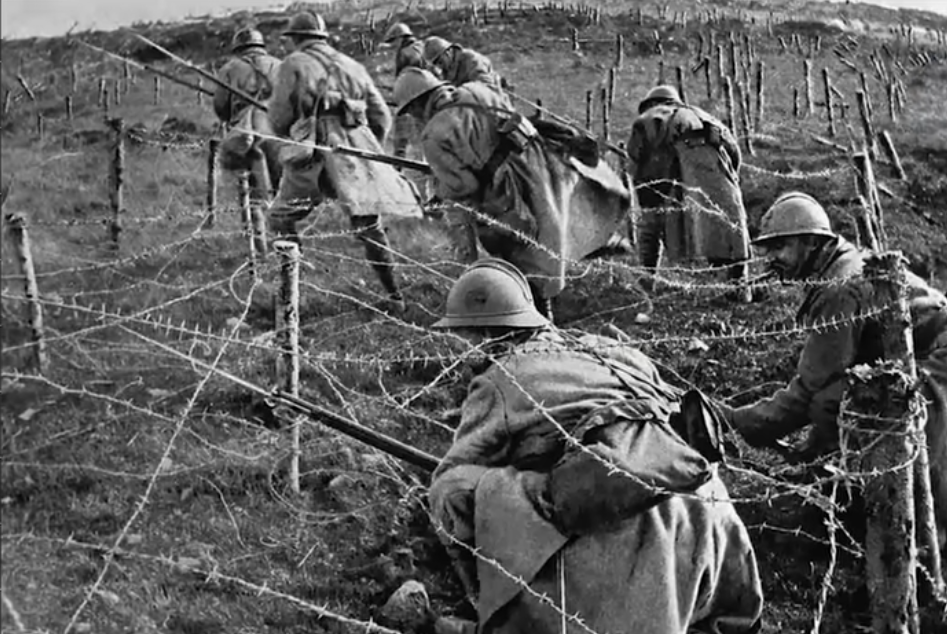
War in Europe seemed like a distant matter, but shortly after, the farmer boys plowing fields in Kinh Bac, the craftsmen in Nam Dinh, or the struggling youths in Nghe Tinh suddenly found their names in the conscription lists of the colonizers. They did not know where France was, what a world war was, nor did they know how many lives would be swallowed by Europe, half a world away, but they were forced to go. After the Penos treaty in 1884, Vietnam officially lost its independence and became a French colony. When the war broke out, the colonial government considered Indochina, including Vietnam, Laos, and Cambodia, as a reserve of people and resources to serve the mother country.
From 1915, France issued recruitment for laborers and soldiers throughout Indochina. Recruitment seemed voluntary, but in reality, it was mostly forced. Local officials, village heads, and district chiefs were given quotas. Any household with able-bodied men had to send them; if they did not go to war, they had to pay a ransom, and if they were too poor, they had to tearfully send their sons off. During World War I, France mobilized about 92,000 Vietnamese to send to Europe, of which about 43,000 were laborers.
Laborers were not actually combat soldiers but workers from Vietnam and also Cambodia, Laos, generally Indochina, who were recruited or forced by the French colonial government to go to France to work during the war. The term laborers originated from the fact that France recruited them under the guise of soldiers, but not to carry weapons and fight like combat soldiers, but to do labor jobs serving the war. Laborers here are understood in the sense of workers. They were still managed under military regulations and had to obey orders like soldiers.
But instead of going to battle, they did hard work in factories producing weapons, ammunition, in farms, and military constructions. They were both soldiers and workers, so the folk called them labor soldiers. Alongside the 43,000 labor soldiers were about 49,000 combat soldiers who directly went to the front lines, fighting alongside French soldiers and soldiers from other colonies like Moroccan and Senegalese soldiers. Back home, hundreds of thousands of farmers were forced into labor, heavily taxed to support the war. Rice, rubber, and metals were stripped away to France. The price of victory that the French desired was the sweat, blood, and tears of the Vietnamese.
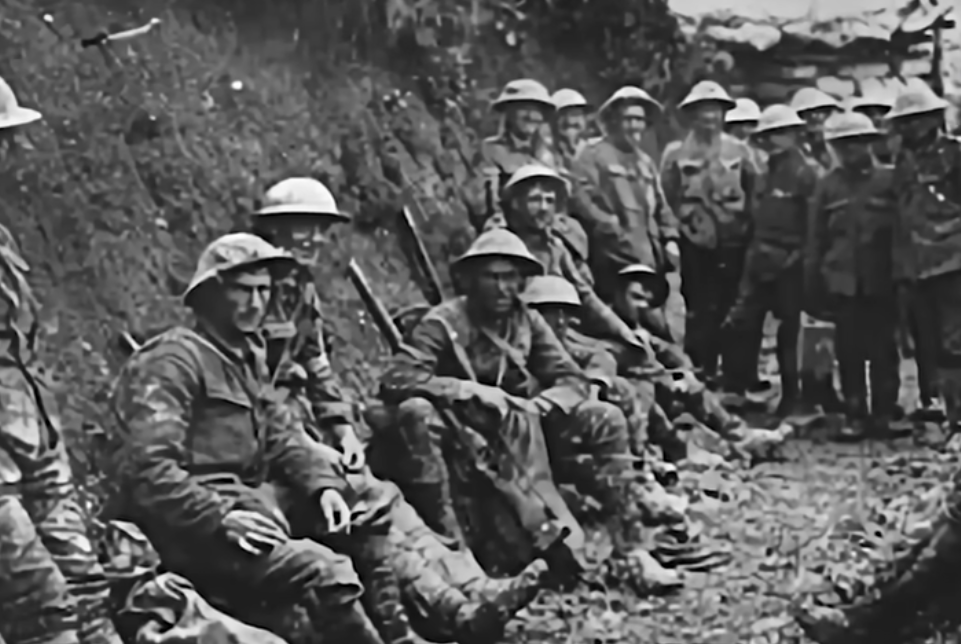
Many young men did not understand what war was. They only knew that if they did not go, their whole family would be punished, even beaten. A few thought that going to the West might allow them to learn something new and earn some money, but most were swept away in vague fear. Large ships welcomed Vietnamese soldiers. Before leaving, many who had never stepped outside their village suddenly faced the vast ocean. They packed a few sets of clothes, brought along rice balls with sesame salt hidden in their hearts, filled with homesickness that had not yet faded before they had to part. The journey lasted for months across the Indian Ocean, through the Suez Canal, the Mediterranean, and the Vietnamese soldiers squeezed together, seasick, ill, bewildered by strange ports and unfamiliar cities. For them, the world suddenly opened up wide but was also full of uncertainties.
Upon arriving in Marseille or Bordeaux, they were taken to concentration camps and then distributed to factories, shipyards, and industrial zones. They became labor soldiers with grueling jobs. Some worked in munitions factories, day and night stamping shells and assembling fuses. Some went to the docks, carrying tons of coal and iron. Some had to saw wood, forge steel, doing dangerous jobs that even French workers did not want to do. Living conditions were harsh. Many labor soldier camps were made of temporary wood, freezing cold in winter, sweltering hot in summer, with meager, unfamiliar food causing many to suffer from stomach aches and exhaustion.
However, it was here that many Vietnamese first encountered the Western world, learned the national language, acquired skills, learned various trades, and were exposed to the ideas of democracy, freedom, and equality. Among them, many later became the core of the patriotic movement. And not only labor soldiers, tens of thousands of others were sent directly to the front lines. Many Vietnamese soldiers were even sent to the Middle East to fight in Syria, Lebanon, and Palestine in campaigns against the Ottoman forces. Thousands of kilometers away from their homeland, they became silent shadows in history, and no one mentioned them.
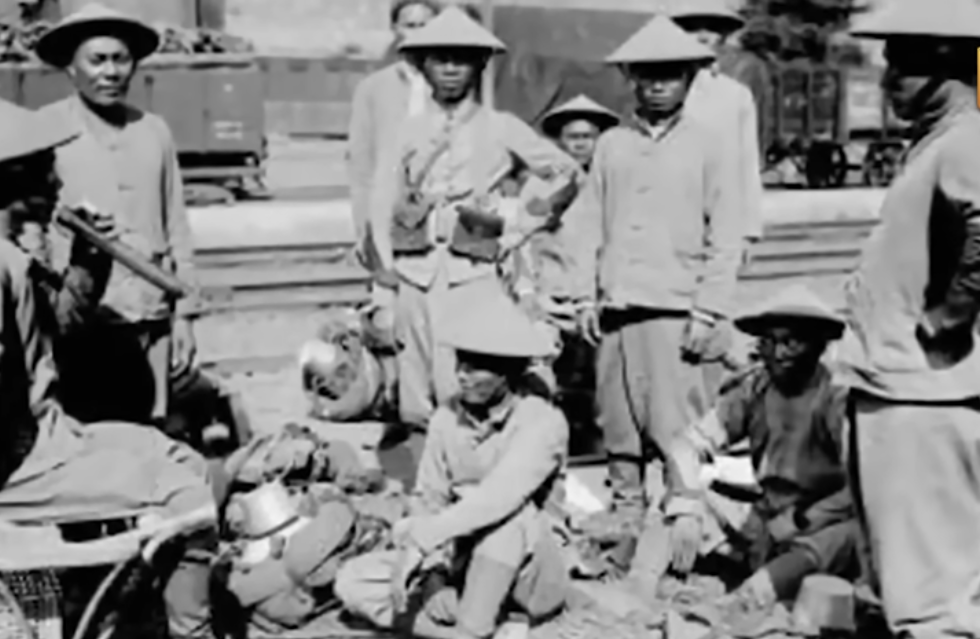
By July 1919, only 11,518 people returned from the European battlefield. The rest had died, gone missing, or did not return. Nguyen Ai Quoc called it the blood tax that the Vietnamese had to pay to the French colonizers. Some fell to bullets, some died from the cold, from illness. They lay in foreign lands, unmarked graves, only cold plaques in French military cemeteries. Although the French promised many things like citizenship, high wages, or improved living conditions, in reality, they treated the Vietnamese very poorly. Vietnamese soldiers faced discrimination, received lower wages than French soldiers, and lived in miserable conditions.
Labor soldiers were exploited, working in dangerous environments without protection. Promises of French citizenship rights were hardly fulfilled. This was one of the promises, one of the biggest illusions guaranteed for the benefits of the French. From 1921 to 1924, out of 71 Vietnamese who applied for citizenship, only eight were approved. That rate was too small compared to the sacrifices that tens of thousands of Vietnamese youths made, showing the deception and injustice in French colonial policy.
While their children were taken far away, the homeland of Vietnam also bore the burden. The French colonizers relentlessly plundered food supplies. Rice from the Northern and Southern deltas was transported to Europe. Rubber, coal, and metals were all directed to the war. The people lost their labor power as young men were conscripted, and they also suffered from hunger as agricultural products were looted. The accumulated resentment became fuel for later anti-French movements. For those who returned, they saw a civilized Europe and heard promises of freedom, equality, and fraternity that were not fulfilled. They also experienced bullets, toxic smoke, and the discrimination of colonizers. That experience made them understand that freedom is not given but must be fought for.
Today, when mentioning World War I, many only refer to Senegalese and Moroccan soldiers. But few know that among them were tens of thousands of Vietnamese. These nameless people, their blood and bones stained the land of Europe. The story of the Vietnamese in World War I is a tale of sacrifice in oblivion but also a story of awakening. Additionally, Vietnam at that time had to contribute up to 184 million francs in the form of loans. This was a huge sum of money. Along with that were 336,000 tons of food, supplies, and various agricultural products. These economic burdens weighed heavily on the Vietnamese, causing dissatisfaction.
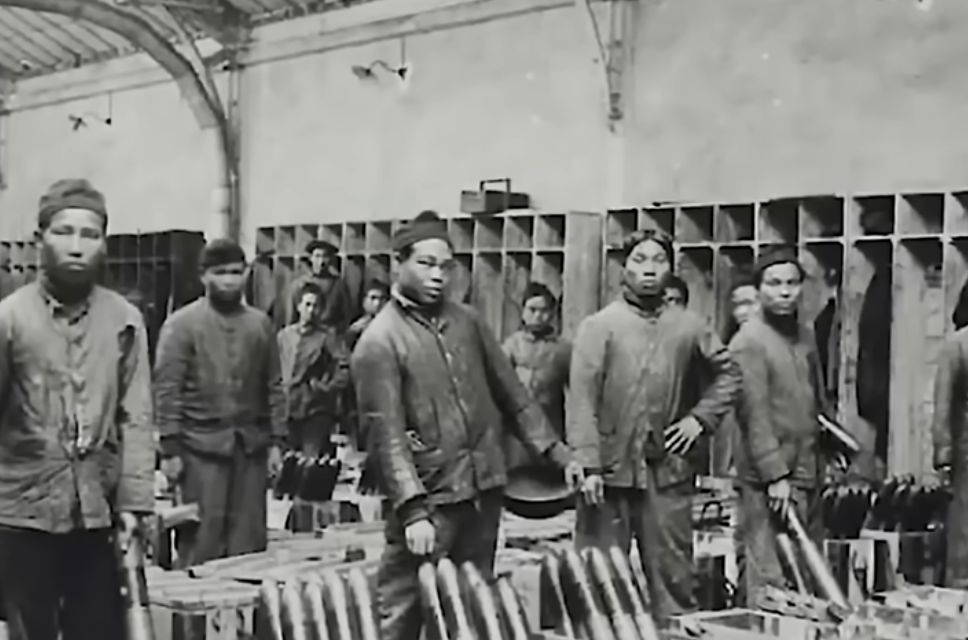
Moreover, Vietnamese agriculture was also facing difficulties at that time due to natural disasters and diseases. The Vietnamese also had to endure extremely high taxes to fund the war for the French colonizers. Those years caught up in a foreign war made the Vietnamese clearly see the true face of colonialism, while also sowing a belief that one day the Vietnamese nation would rise to reclaim the right to self-govern, the rest is history.
